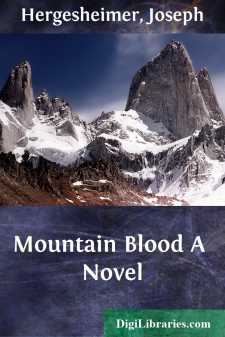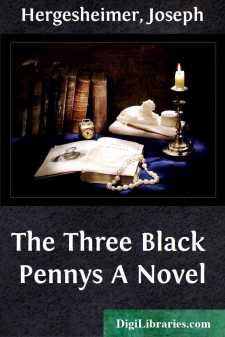Categories
- Antiques & Collectibles 13
- Architecture 36
- Art 48
- Bibles 22
- Biography & Autobiography 813
- Body, Mind & Spirit 142
- Business & Economics 28
- Children's Books 17
- Children's Fiction 14
- Computers 4
- Cooking 94
- Crafts & Hobbies 4
- Drama 346
- Education 46
- Family & Relationships 57
- Fiction 11829
- Games 19
- Gardening 17
- Health & Fitness 34
- History 1377
- House & Home 1
- Humor 147
- Juvenile Fiction 1873
- Juvenile Nonfiction 202
- Language Arts & Disciplines 88
- Law 16
- Literary Collections 686
- Literary Criticism 179
- Mathematics 13
- Medical 41
- Music 40
- Nature 179
- Non-Classifiable 1768
- Performing Arts 7
- Periodicals 1453
- Philosophy 64
- Photography 2
- Poetry 896
- Political Science 203
- Psychology 42
- Reference 154
- Religion 513
- Science 126
- Self-Help 84
- Social Science 81
- Sports & Recreation 34
- Study Aids 3
- Technology & Engineering 59
- Transportation 23
- Travel 463
- True Crime 29
Cytherea
Description:
Excerpt
I
It was, probably, Lee Randon realized, the last time he would play golf that year. He concluded this standing on a shorn hill about which the country was spread in sere diminishing tones to the grey horizon. Below, a stream held a cold glimmer in a meadow of brown, frost-killed grass; and the wind, the bitter flaws where Lee stood, was thinly scattered with soft crystals of snow. He was alone, no one would play with him so late in the season, and there had been no boy present to carry his clubs. Yes, this was the last time he'd try it until spring: Peyton Morris, who had married Lee's niece and was at least fourteen years his junior, had been justified in a refusal which, at its expression, had made Lee cross.
At worse than forty-five, he had told Morris curtly, he was more active than the young men hardly out of the universities. To this Peyton had replied that undoubtedly Lee had more energy than he; personally he felt as old as—as Egypt. Ridiculous, Lee decided, trying to make up his mind whether he might continue playing or return, beaten by November, to the clubhouse. In the end, with numb fingers, he picked up his ball, and walked slowly back over the empty course. The wind, now, was behind him, and increasingly comfortable he grew reflective:
The comparison of Peyton Morris's age with his, recalling the fact, to be precise, of his forty-seven years, created a vague questioning dissatisfaction. Suddenly he saw himself—a comfortable body in a comfortable existence, a happy existence, he added sharply— objectively; and the stout figure in knickerbockers, rough stockings, a yellow buckskin jacket and checked cap pulled over a face which, he felt, was brightly red, surprised and a little annoyed him. In the abrupt appearance of this image it seemed that there had been no transitional years between his slender youth and the present. He had an absurd momentary impression that an act of malicious magic had in a second transformed him into a shape decidedly too heavy for grace. His breathing, where the ground turned upward, was even slightly labored.
It was, Lee thought with all the intensity of an original discovery, devilish unpleasant to grow old; to die progressively on one's feet, he elaborated the fact. That was what happened to a man—his liver thickened, his teeth went, his veins became brittle pipes of lime. Worse than all that, his potency, the spirit and heat of living, met without any renewal its inescapable winter. This might, did, occur while his being was rebellious with vain hope. Today, in spite of the slight clogging of his breath, his body's loss of flexibility, his imagination was as vigorous, as curious, as ever … take that nonsense about the doll, which, in a recalled classical allusion, he had privately named Cytherea. Peyton Morris would never have entered into that!
Lee Randon, on one of his infrequent trips to New York, had seen it in a confectioner's window on Fifth Avenue, and instantly it had captivated his attention, brought him to a halt....








